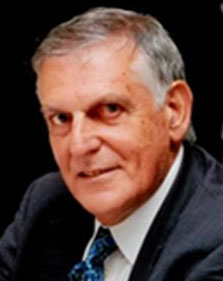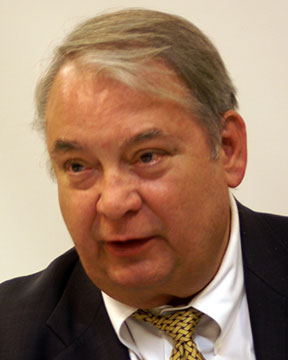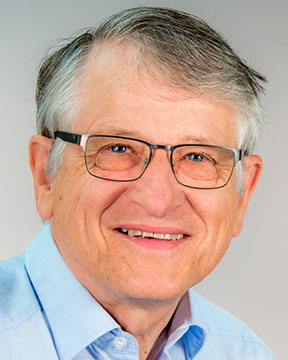Abstract:
At present a number of modern semiconductor devices based on SiGe alloys have been created in which the latest achievements of high technologies are used. These devices might cause significant changes to networking, computing, and space technology. In the nearest future new materials based on SiGe will be able to restrict the A3B5 and Si technologies and firmly establish themselves in medium frequency electronics. Effective realization of these prospects requires the solution of prediction and controlling of structural state and dynamical physical –mechanical properties of new SiGe materials.
Based on these circumstances, a complex investigation of structural defects and structural-sensitive dynamic mechanical characteristics of SiGe alloys under different external impacts (deformation, radiation, thermal cycling) acquires great importance.
The investigation of defects in SiGe alloys’ bulk crystals might be successfully carried out by the IF method, which is distinguished by high sensitivity to the mechanical stress field formed in the vicinity of crystalline lattice defects. It makes possible to effectively identify defects of SiGe alloys bulk crystals, to establish mechanisms of their influence on the structural sensitive physical-mechanical and electrophysical properties. Such research will help to solve the problem of creating highly efficient semiconductor structures and devices with controllable parameters based on SiGe alloys.
The contribution of a dislocation structure in relaxation and hysteretic processes of torsion oscillations damping in SiGe alloys’ bulk crystals has been studied [1-3]. Decrease of the activation characteristics of relaxation processes of dislocation origin is shown by influence of a relatively small content of Ge (1-3 at%). Reduction by ~15 % in the microplastic deformation characteristics has been revealed at 600-650 ⁰C temperatures in Si1-xGex (x≤0.02) alloys containing dislocations of 104-105cm-2 densities [1]. An additional reduction of IF activation characteristics has been revealed in Si1-xGex(x≤0.01) alloys doped with As or B of 1018-1020 cm3 concentration [4]. SiGe alloys are characterized by different types of dislocations with distinctly different energetic and dynamic parameters [5]-[7]. This conditions the formation of complex IF spectra related to the moving dislocations.
Relaxation maximum with activation energy ~1.4 eV was revealed at 280 °C temperature at ~1 Hz frequency in IF spectrum of p-type monocrystalline Si0.98Ge0.02 irradiated by gamma rays. Its relation to the radiation-induced vacancy-oxygen complexes is supposed [3].
In the present work internal friction and shear modulus temperature and amplitude dependences of the monocrystalline boron-doped Si1-xGex(x≤0.05) alloys grown by Czochralski technique is studied in initial and 60Co gamma-irradiated states. In the initial samples a set of dislocation origin relaxation processes and accompanying modulus defects are revealed in a temperature interval of 400-800⁰C. It is shown that after gamma-irradiation intensity of relaxation internal friction in the vicinity of 280 ⁰C increases and simultaneously activation parameters of high temperature relaxation processes reveal clear rising. It is proposed that these changes of dynamical mechanical characteristics might be caused by a decrease of the dislocation mobility in the Cottrell atmosphere enriched by the radiation defects.
References:[1] I.Kurashvili, G. Bokuchava, T. Mkheidze, I. Baratashvili. Bulletin of the Georgian Academy of Science, 175( 4),2007) 62-65.
[2] I.Kurashvili, G. Darsavelidze, G. Bokuchava. J.Physica Status Solidi A, 214 (7), (2017) 17001071- 17001074.
[3] I.Kurashvili, G. Darsavelidze, G.Bokuchava, G. Chubinidze, I. Tabatadze, G.Archuadze. Bulletin of the Georgian Academy of Science,12(3), (2018) 57-61.
[4]I.Kurashvili, G.Darsavelidze. Proceedings of the International Conference “Advanced materials and Technology” (2015) Tbilisi.
[5] I.Yonenaga, K. Sumino. J. Physics, III France (7), (1997) 2367-2374.
[6] I. Yonenaga, M. Werner, M.Bartsch, U.Messerschmidt. E.R Weber. J.Physica Status Solidi 171 (a), (1999) 35-40.
[7] I. Yonenaga (471), (2013) 0120021-0120029. doi:10.1088/1742-6596/471/1/012002
|




















